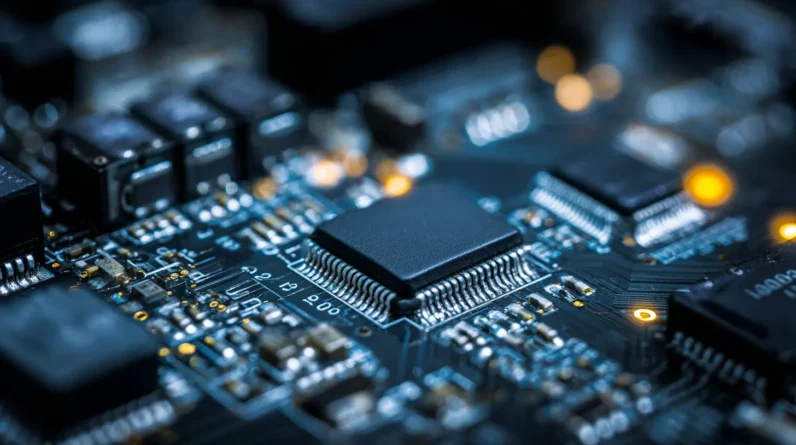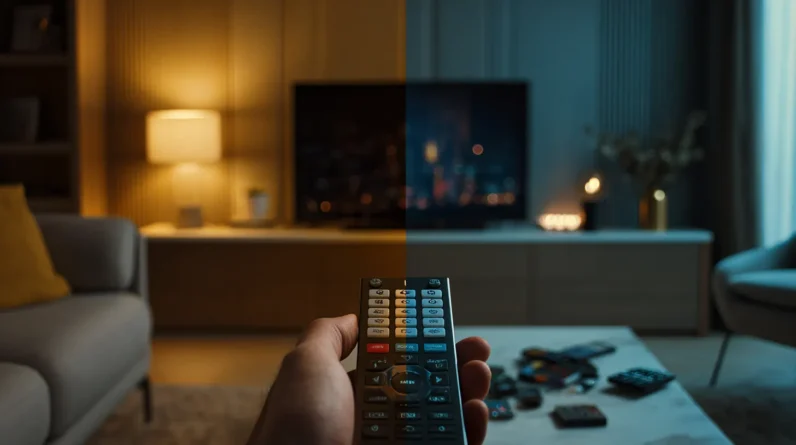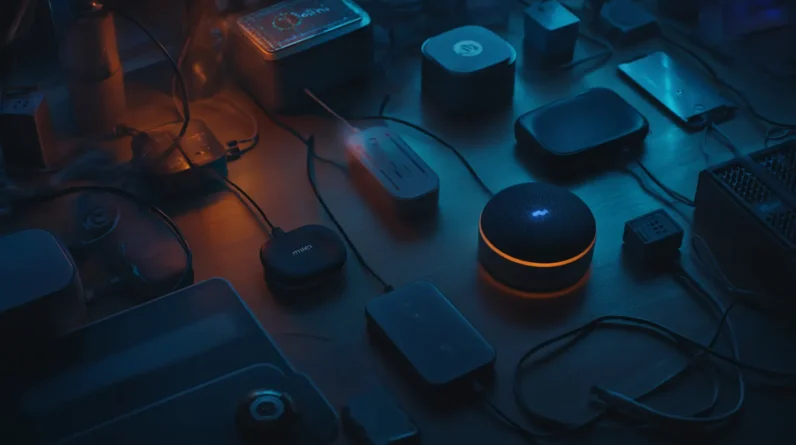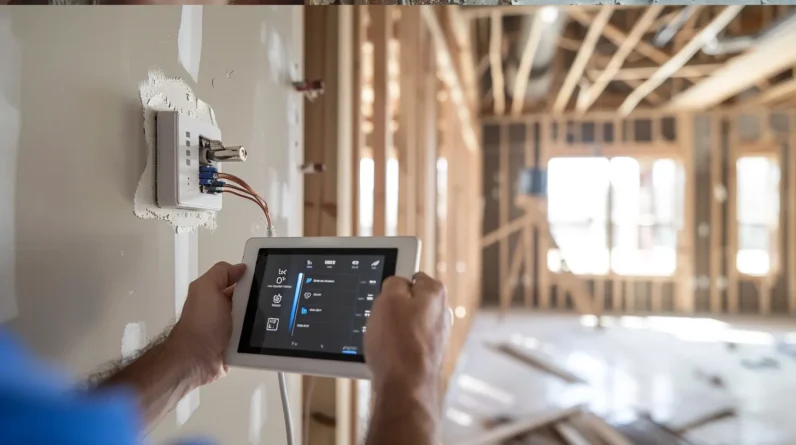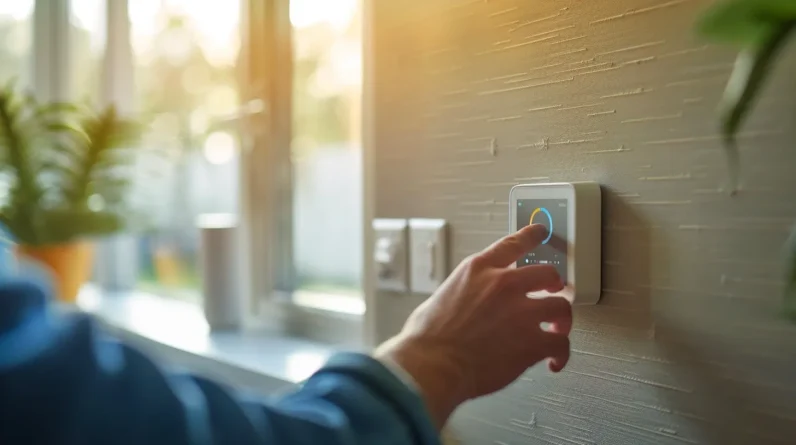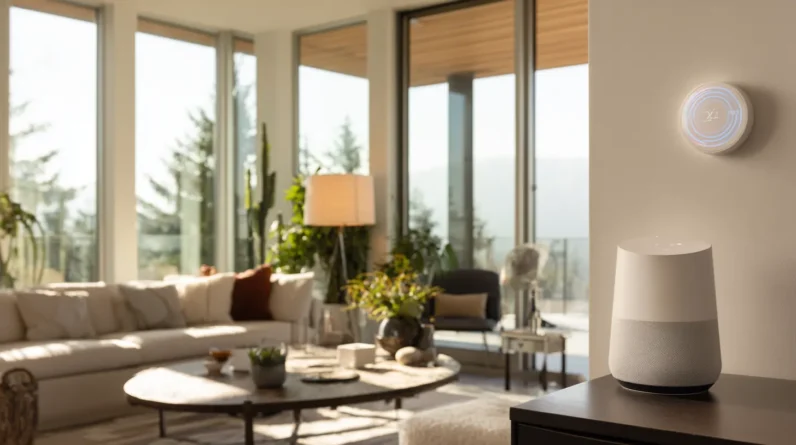
We’re experiencing a significant shift in smart home technology, where devices provide not only convenience but also substantial energy savings, contributing to environmental sustainability. With advancements in AI, 5G, and intuitive controls, smart devices are becoming increasingly efficient. As we integrate and prioritize interoperability, we’re paving the way for predictive automation, optimized energy use, and enhanced security. By exploring the current landscape and future developments, we can activate the full potential of smart home automation.
The Current Landscape of Smart Devices in Homes
As we survey the current landscape of smart devices in homes, it’s clear that these technologies have become increasingly prevalent and sophisticated. From smart thermostats and lighting systems to voice-controlled assistants and connected appliances, the modern home is now a hub of cutting-edge technology. These devices offer unprecedented convenience, allowing us to control various aspects of our living spaces with ease. Additionally, they’re designed to seamlessly integrate with each other, creating a cohesive ecosystem that enhances our daily lives. With the rapid advancement of artificial intelligence and machine learning, we can expect even more innovative and intuitive smart home solutions in the near future.
Energy Savings and Environmental Benefits of Smart Devices
While the convenience and innovative features of smart devices are impressive, their impact on energy efficiency and the environment is equally remarkable. By optimizing energy consumption through intelligent automation, smart devices substantially reduce our carbon footprint. For instance, smart thermostats learn our preferences and adjust temperatures accordingly, avoiding unnecessary heating or cooling. Smart lighting systems use sensors to detect occupancy, dimming or turning off lights in unoccupied rooms. These technologies, combined with energy-efficient appliances and smart power strips that cut phantom loads, contribute to substantial energy savings. As we embrace these innovations, we’re not only enhancing our comfort but also actively participating in preserving our planet for future generations.
Advancements in Smart Device Technology
Because smart devices have become an integral part of our daily lives, we’ve seen tremendous progress in their technological development. Let’s explore some key advancements:
- Artificial Intelligence (AI) Integration: AI enhances smart devices’ ability to learn and adapt, improving efficiency and personalization.
- Enhanced Connectivity: With the advent of 5G and improved Wi-Fi standards, our devices connect faster and more reliably.
- Energy Efficiency: New materials and technologies have drastically reduced the power consumption of smart devices.
- Voice and Gesture Control: These interfaces offer more intuitive ways to interact with our devices, making them more accessible and user-friendly.
Integration and Interoperability of Smart Home Systems
We’ve seen significant advancements in individual smart devices, but their full potential is only realized when they work together seamlessly as a cohesive system. To achieve this, integration and interoperability are vital. We need standardized communication protocols that enable devices from different manufacturers to exchange data and coordinate actions. We’re starting to see progress in this area, with protocols like Zigbee, Z-Wave, and Bluetooth Low Energy (BLE) becoming more widely adopted. However, we still face challenges like device compatibility and data security. As we continue to develop more complex smart home systems, we must prioritize interoperability and guarantee that devices can work together seamlessly to achieve peak efficiency and automation. This requires a concerted effort from manufacturers, developers, and industry stakeholders.
Predictions for the Future of Home Automation and Efficiency
As we look to the future of home automation and efficiency, it’s clear that advancements in artificial intelligence (AI) and machine learning will play a significant role. We can expect:
- Predictive Automation: Systems will anticipate user needs and adjust settings before we even realize we want a change.
- Energy Optimization: Smart homes will become even more efficient by learning from our daily habits and optimizing energy use.
- Integrated Ecosystems: The interoperability of devices from different brands will improve, creating seamless, automated environments.
- Enhanced Security: AI will bolster home security through advanced recognition technologies and predictive algorithms to prevent breaches.
These developments will redefine convenience, efficiency, and security in our homes.
Conclusion
As we look to the future, the potential for smart home devices to revolutionize our lives is as vast as the ocean. With advancements in technology and integration, these devices will become even more efficient and user-friendly. By embracing this technology, we can not only save energy and money but also contribute to a greener planet. The future of home automation is bright, and we’re just beginning to scratch the surface of what’s possible.


